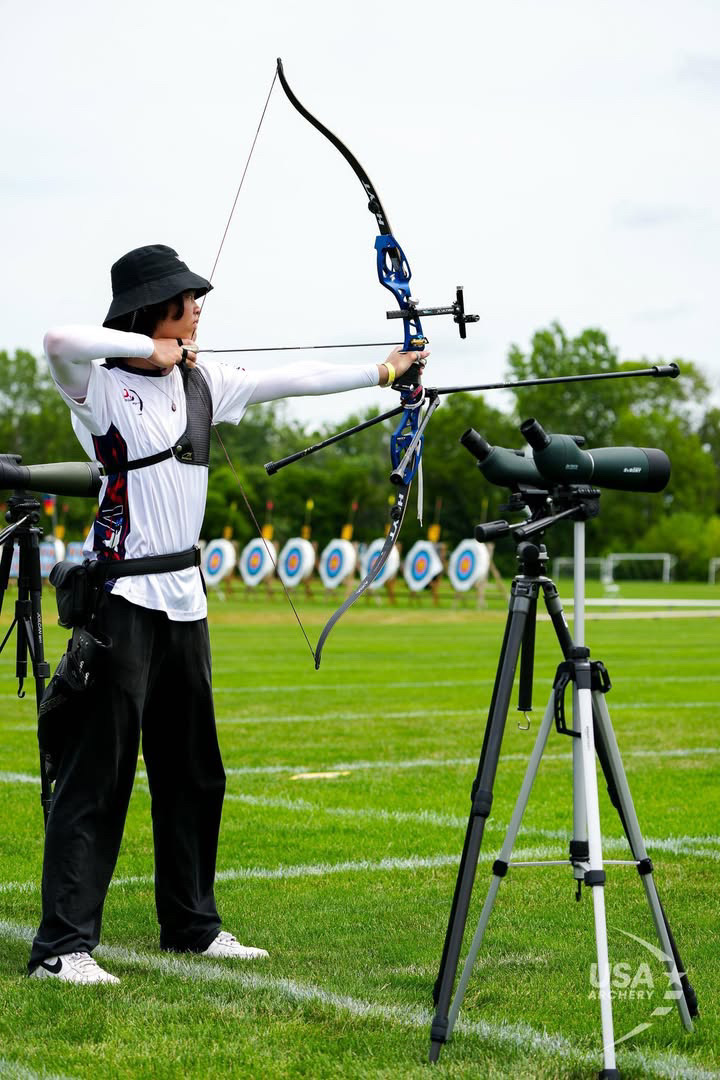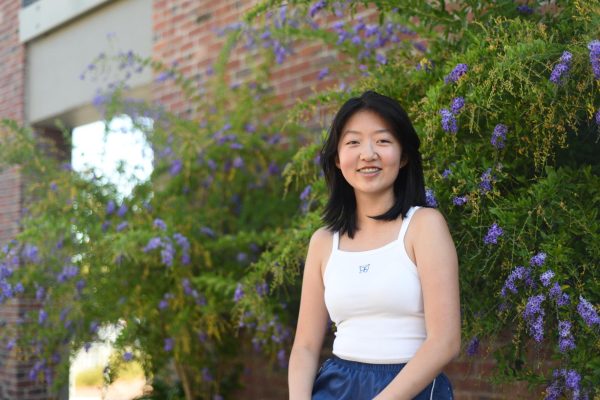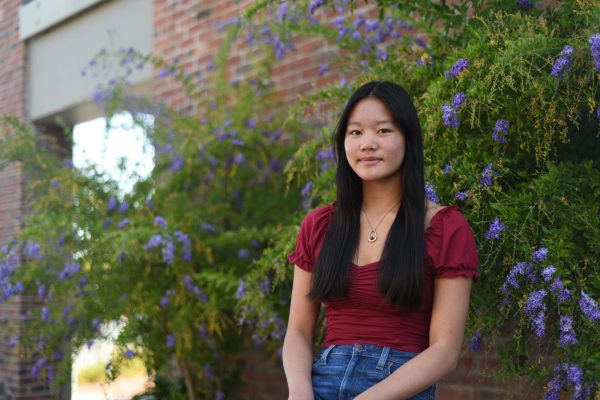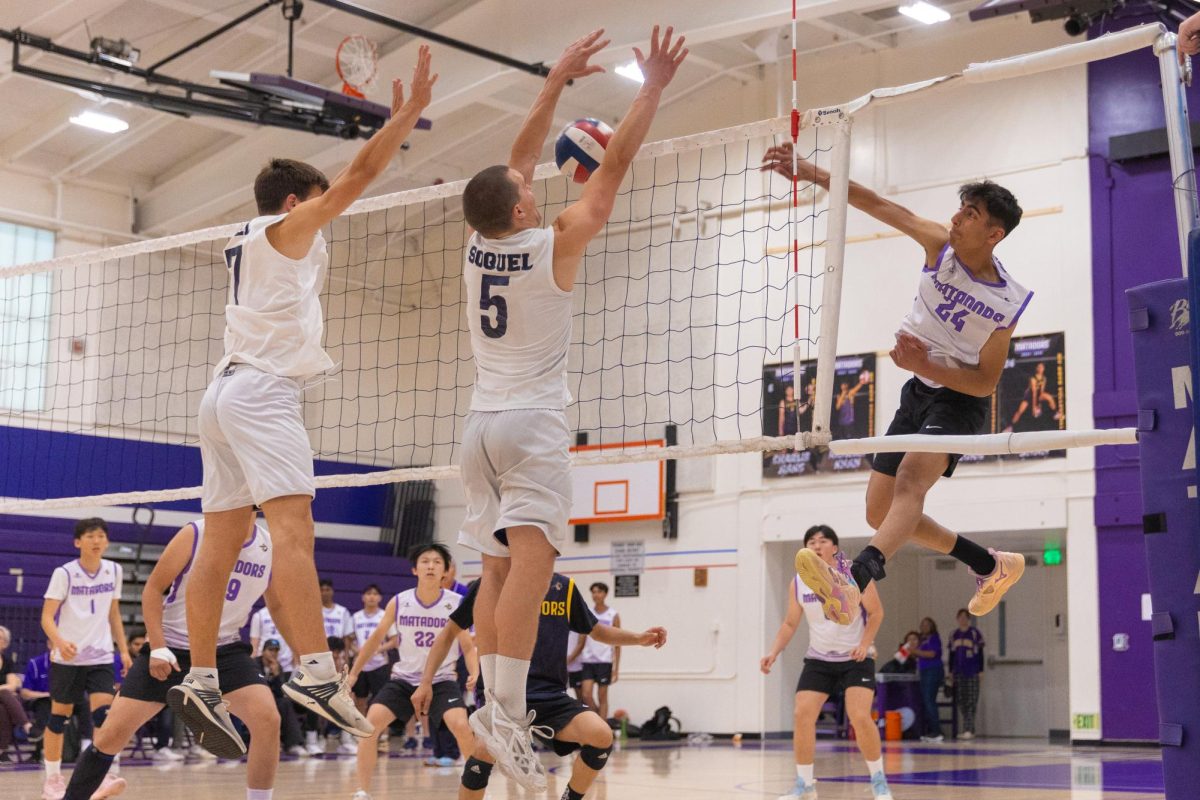EE: Hi everyone, my name is Liz Liu. And I’m Angela Poon. Welcome to Episode 28 of Time Out! Each episode, we dive into the sports scene here at MVHS and explore the journeys of athletes from various sports. In this episode, we are joined by junior Julian Kwon who shares his journey in archery.
EE: How old were you when you began to compete in archery?
JK: I was around 11 or 12.
EE: Archery isn’t what people tend to think of when we think of sports. What got you interested in a more niche sport?
JK: Before I did archery, I used to do competitive swimming, but I stopped. My mom decided I needed to still do something on Saturdays, and she suggested archery. And so I said, I’ll try it out. And I tried it for a little bit, and then I got a little more interested in it.
EE: Was there anyone who particularly encouraged you or inspired you to compete in archery?
JK: I would say my coach, because when I first tried out for archery, it was just like something to do on Saturday. But my coach got me more interested in it.
EE: Does anyone else in your family play archery?
JK: No, just me.
EE: When did you start competing in archery?
JK: Probably when I was 13 or 14.
EE: Have you won any awards?
JK: Yes.
EE: Which ones?
JK: I’ve won a couple of state medals. Both of them were second place.
EE: What is your favorite memory regarding archery?
JK: My favorite memories are just spending time with my clubmates, my friends.
EE: How did you meet friends playing archery when it seems like a solo sport?
JK: It’s not very solo. There’s a lot of teamwork that is involved. At tournaments, I usually meet a lot of people there too. I just became friends because a lot of them actually go to similar schools, same districts.
EE: How many hours do you spend a week on archery? And how do you balance your time to ensure that you have enough time for school work, maintaining relationships and archery?
JK: I used to spend about maybe like eight hours a week. It’s gone down a little bit because of school, but I used to balance out training in the morning and at night after I was done with my schoolwork. That’s how I balance that out with schoolwork.
EE: Did training so often ever impact your stress or your mental health or your academic performance?
JK: Not really. I try to spend time practicing in a way where it doesn’t affect my academics, and it’s actually when I practice, it’s very calming, so it doesn’t really put a lot of stress on me.
EE: What’s the most challenging aspect of the sport?
JK: The most challenging aspect is consistency and keeping a strong and consistent mindset.
EE: So how do you maintain a strong and consistent mindset? And why is it important?
JK: When you’re shooting, it’s very technical and very mental, and if you want to have a good score, you have to be very physically consistent, but that requires being mentally consistent, and you. It’s important to have that consistency. Otherwise, it’s going to mess you up, especially in the middle of your shot, because you need a lot of mental strength to keep what you’re focusing on.
EE: Has this mental strength ever been useful like outside of archery?
JK: Yes. Patience is one part of archery, and probably also not getting too upset about a bad shot. I apply that to like test scores. I have a bad test score, I just say “It’s whatever,” and do better on the next one.
EE: What’s the most rewarding aspect of the sport?
JK: I think the most rewarding aspect of the sport is actually the friends you make, especially if you go to a club, there’s a lot of people there, and usually they’re your age. So, it’s very easy for you to make friends, and it’s also very rewarding.
EE: What is one lesson you’ve learned from playing this sport?
JK: I would say probably being able to salvage a day that just basically means you have a bad day, just do your best to make it better.
EE: Can you describe one experience where you’ve had to use this lesson, whether in archery or outside of archery?
JK: One day of practice at a club meet, we were scoring. This was just practice, but I’m very competitive, so when I had a slightly worse score, I was very upset, and I would make it known I was very upset. But my coach taught me this “salvaging the day” kind of lesson, and so I just tried to on the next practice round, I just tried to make it better, and even if it was bad, I wouldn’t be too upset about it, because I know it’s just practice.
EE: That’s a really good lesson. What advice would you give to someone starting out with archery?
JK: The very first advice I will give out to starting with archery is to probably pick a decent instructor or coach.
EE: Why?
JK: Because there’s also, there’s a lot of times where beginner archers, they pick a kind of sketchy coach, or someone who’s too inexperienced, and so a lot of the lessons they give might be wrong, and a lot of the advice they give can also be wrong sometimes, and it’s not very good.
EE: I see. Thank you so much for your time, and thank you for joining us.
EE: That’s it for Episode 28 of Time Out. Thank you again for joining us. I’m Angela Poon. And I’m Liz Liu. We will see you next time for another episode of Time Out!












